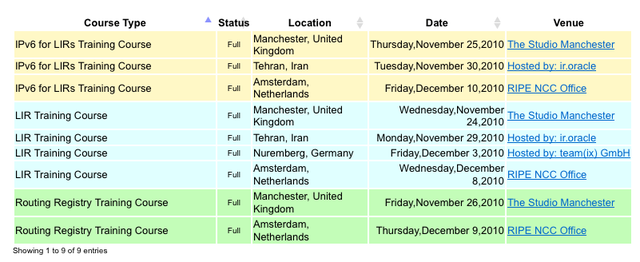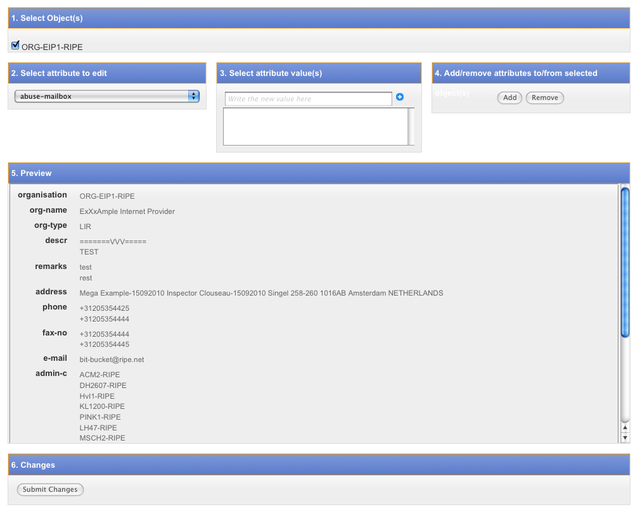The LIR Portal is one of the most important communication tools between the RIPE NCC and its members. It has been migrated to a new system without any service interruption or significant changes for the users.
Introduction
The LIR Portal is an important tool for RIPE NCC members when requesting new IP resources or maintaining existing ones. It is essential for their day-to-day operations as an LIR. That means the RIPE NCC cannot make significant changes that would risk the portal being unavailable or affect the operations of LIRs in any way.
On the other hand, the LIR Portal was getting old. It was originally written in Perl and became very complex and difficult to maintain. The structure of registration information has also changed over time, following the different needs and requirements of the community.
Main improvements
We decided to change the back-end while keeping the same look and feel so that the users would experience as little change as possible. We used the opportunity, however, to make some small improvements to the user experience (see more details below).
The new LIR Portal is written in Java just like most of the more recent software developed at the RIPE NCC. The stronger object-orientation in Java lets us write less code which is easier to test and to debug. It also allows us to release code of measurable quality. We now monitor test coverage and other metrics such as reusability, and code duplication.
The underlying concept of the new LIR Portal is based on a simple user interface that talks to services running in the background. That means the majority of the workload gets delegated to these services which makes the LIR Portal smaller and faster. This also makes the software more flexible and allows us to respond very quickly to new requirements. For instance, policy changes that need to be reflected in the LIR Portal can now be implemented much more easily.
The new LIR Portal software has already resulted in benefits, for the user and for us. The LIR Portal is now split into different physical modules, giving us the ability to perform maintenance selectively and avoid unneccessary downtime for the rest of the services. This means we can drastically increase the number of releases to the live system and spend much less time on application management.
No changes for LIR Portal users
While improving the underlying system drastically, the interface of the LIR Portal is almost unchanged. However, we made some small cosmetic changes while we were migrating the system:
- It is easier to search for parts of the content
- Feedback messages and comments have been made clearer
- Output is searchable and sortable (for instance, one can now search for certain training course (see Figure 1 and 2 below)


- The database object editor has been improved; updating fields in objects is much more straight forward (see Figure 3 below).

During the migration of the system, some users might have been prompted to login twice for some of the functionality provided on the LIR Portal. Now with all menus ported to the new system, this will not be necessary anymore – with one exception: The link to the X.509 PKI at the bottom of the LIR Portal page still requires a separate login. This will be fixed together with the launch of the certification system early in 2011.
Conclusion
The LIR Portal has been moved to a new system in order to make it faster and more flexible for future requirements. It is also more stable and much more easy to maintain.
Acknowledgments
This article is based on input provided by Paolo Milani, Kaveh Ranjbar and Trudy Prins.





Comments 0
The comments section is closed for articles published more than a year ago. If you'd like to inform us of any issues, please contact us.